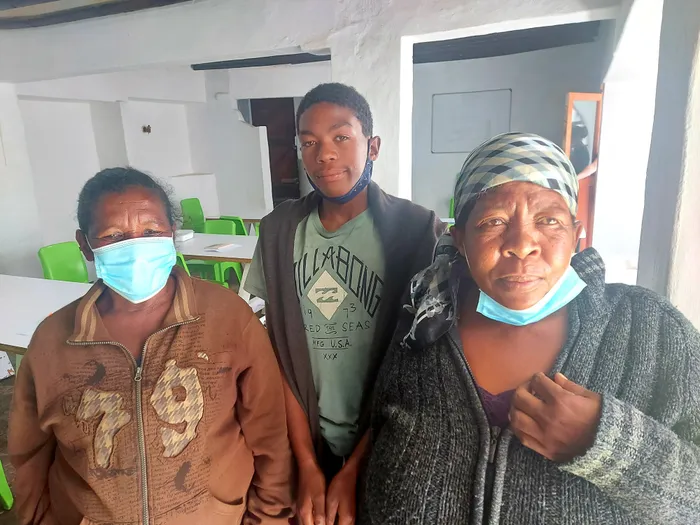U-Turn helps homeless turn their lives around

Rugshana Gasant, Dalmond Williams and Mayra Williams say they feel hopeful now that U-Turn has opened in Muizenberg.
New doors are opening in Muizenberg for unemployed and homeless people.
U-Turn, a non-profit organisation that uses a voucher system to help the homeless, is officially opening a service centre today, Thursday March 18, in Killarney Road.
"This is the place where we offer the first step of our long-term plan for the people who are homeless," says service centre manager Katlyn Sebatsane.
The organisation has had a presence in the area for three years, but the service centre will allow it to offer its full programme in Muizenberg.
Ms Sebatsane said more than 80% of U-turn graduates remained sober and employed after completing their programme.
The centre will be open Mondays to Fridays, from 9.30am to 1pm, although there are plans to extend the hours as funds and volunteers allow.
The opening of the centre has given new hope to Mayra Williams and her son, Dalmond. Ms Williams lost her husband three years ago, and her domestic-work job dried up during Covid. She had lost her home and she and her son had been on the streets for nine months, she said. It had been terrifying sleeping outside and encountering gangsters.
"This is my first bit of hope, that my son and I can get help," she said.

Sharon Muller has been on the streets for 15 years, her friend Jeremy Gordon even longer. Ms Muller said it was difficult to imagine another life, but she wanted to believe one was possible.
Mr Gordon said he had learned that what you put into life, you get out, so it was important to choose friends carefully. "Although your choices on the street are limited,“ he added. ”But there are still good people who have just had bad things happen to them. To us.“
Both Ms Muller and Mr Gordon have enrolled in the U-Turn programme and want to turn their lives around.
The programme has four steps: the first, “preparation”, gives the homeless food and clothing in exchange for a voucher, which they can earn at the U-Turn service centre or have donated to them by the public.
The next step is rehabilitation. When ready, they are referred to a shelter and, if needed, to a substance-abuse rehab. According to Ms Sebatsane, only some 10% of homeless people do not have addiction issues because most use drugs or alcohol to numb past trauma or the pain of living on the streets.
Shelter fees and transportation costs for people going into rehab are sponsored and psychosocial support is also provided.
"While we are not a rehab facility, and while we do not deal directly with the issues of mental health, we do have a very strong referral system in place so we can help move people to the structures that do provide those services," she said.
Work readiness is the third step. On-the-job experience is provided in one of U-Turn’s seven charity stores. Vocational and life-skills training are provided, as well as psychosocial support, through weekly sessions with an occupational therapist or counsellor.
The road to independence is next, with employment as the fourth stage.
This is when the participants have built a strong level of stability and resilience. Then they graduate into open labour market employment.

For more than 10 years U-Turn has run a service centre in Claremont, serving up to 900 individuals every year.
Jon Hopkins, the manager at U-Turn in Claremont, said: "We are often asked if the centre draws people into the area. In fact, it does the opposite. The centre provides a way for street people in an area to leave the streets."
He said that instead of begging, homeless people were kept busy in U-Turn’s programme, and the voucher system dissuaded those people from the area who wanted money instead of vouchers.
Ms Sebatsane said the vouchers let the public help in a meaningful way. "Collectively giving responsibly is a kind solution for both the individual in need and the community at large," she said.
Vouchers will be available at shops in Muizenberg, St James and Kalk Bay, or from homeless.org.za/vouchers.
